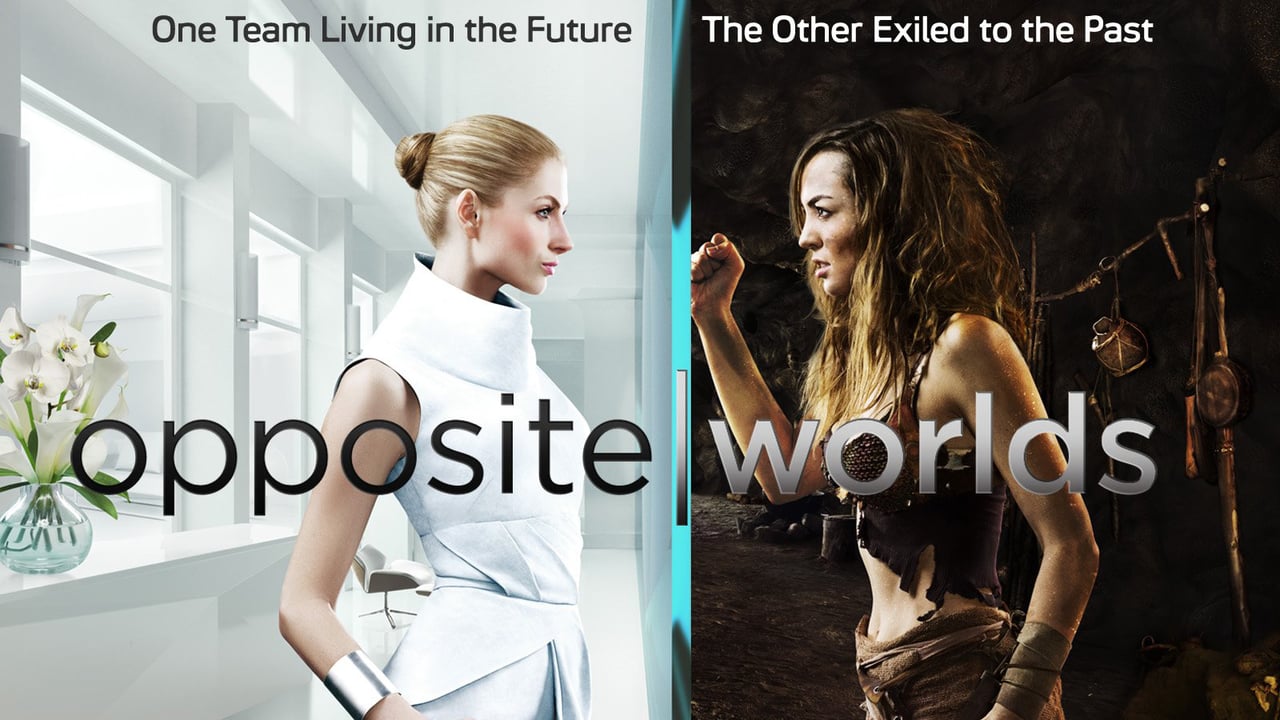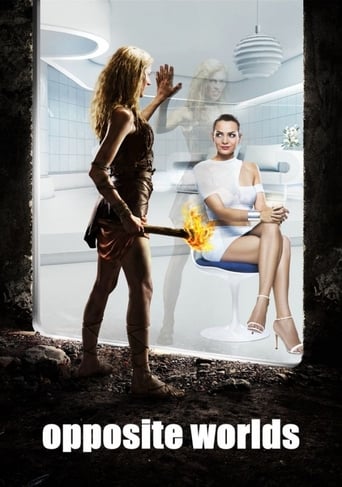

Having watched ten episodes of Opposite Worlds, I am ready to say that I look forward to coming episodes. The game bills itself as a "social experiment", but it is derivative of prior games that have broken this ground already.Imagine two teams in competition with each other. One team lives in the Big Brother House and the other lives on a Survivor-like island. That is not far from the basic premise of Opposite Worlds. Both teams are isolated from the outside world and they periodically compete to decide who will be eliminated. Sounds familiar, right?Actually, in Opposite Worlds, the two teams live within the same structure, divided by a glass wall. On one side of the wall (The Future) is a futuristic world that is nearly sterile and filled with all the comforts technology can afford. On the other side is (The Past) is a dirty world of primitive means, where beds are strewn hay and heat is provided by the fire you build yourself. Those who live in The Future enjoy well-balanced meals and champagne. Those in The Past survive on raw carrots and such disgusting fare as pig heads. You can imagine the bathroom facilities.When a team wins a challenge, they have the option of choosing which world they want to live in. This is a fairly simple choice. There is no joy in Mudville, believe me.The game is, largely, driven by the personalities. They run the gamut--from a worm of a player who is not a fan favorite to a Rocky Balboa-like specimen who is built for physical competitions. During their weeks in the game, some strong personal bonds are formed. We witness arguments and happiness and some moments that are real tearjerkers.Opposite Worlds introduces the technology of Twitter to the game, allowing the viewing audience to make major decisions in the game and to express their likes and dislikes of players, with resulting rewards and punishments. This takes the "social game" beyond the personal interactions of the players and forces the players to consider the impressions they make on the home audience.Like Big Brother, some portions of the shows are live, which does add some immediacy to the results and an element of unpredictability.Regarding the basic strategies of all social games, it did not take long for an alliance to be formed, but the romance/showmance strategy is not being employed. Maybe most of the players are married.One last thing. In competition shows, it can be difficult to create games that don't seem like mere variations of those we have seen on other shows. Opposite Worlds provides some gameplay constructs that are unique in both appearance and operation.
... View More